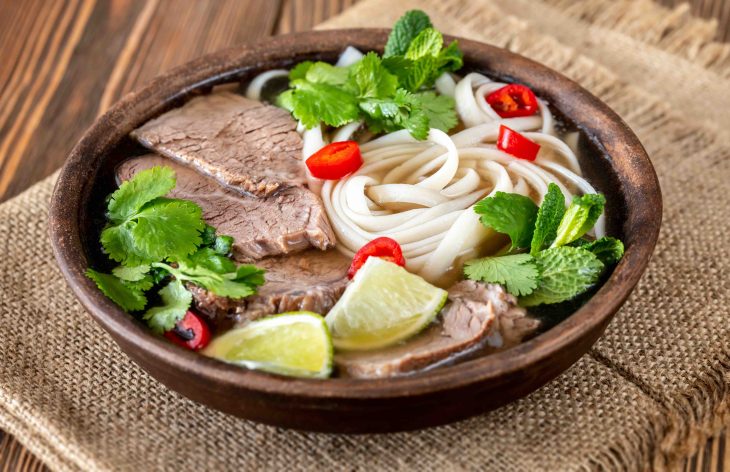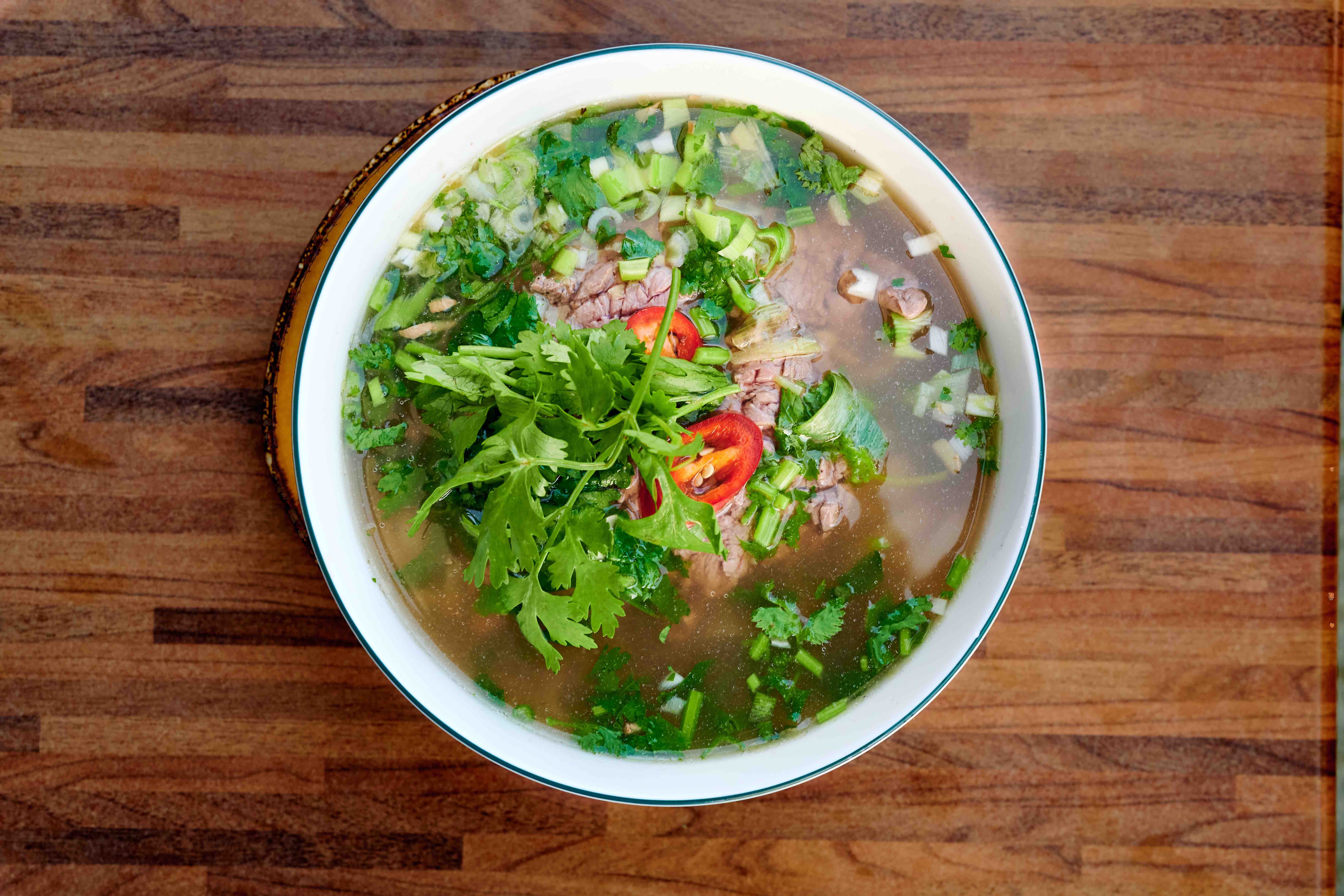
Beef pho, a traditional Vietnamese dish, is a delectable and aromatic soup that has gained popularity worldwide. Beyond its tantalizing flavors and satisfying warmth, beef pho also offers numerous health benefits. This article delves into the nutrition facts of beef pho, shedding light on its valuable components and how they contribute to overall well-being.
A Wholesome Broth Base
The soul of beef pho lies in its broth, which is made by simmering beef bones, herbs, and spices for hours. This slow-cooking process extracts essential nutrients such as vitamins, minerals, and collagen, making the broth a nourishing foundation for the dish.
Protein Powerhouse
Beef pho is a great source of protein, thanks to its tender beef slices. Protein is essential for muscle growth and repair, as well as supporting the immune system. A serving of beef pho can provide a significant portion of your daily protein needs.
Nutrient-Rich Herbs and Spices
The fragrant herbs and spices used in beef pho not only enhance its taste but also contribute to its nutritional profile. Ingredients like star anise, cinnamon, ginger, and coriander offer various health benefits, including anti-inflammatory properties and antioxidant effects.
Immune-Boosting Vitamin C

Pho typically incorporates lime or lemon wedges as garnish. These citrus fruits are excellent sources of vitamin C, which helps strengthen the immune system and aids in the absorption of iron from the beef.
Nourishing Rice Noodles
The soft and silky rice noodles in beef pho provide a gluten-free alternative to wheat-based noodles. They are easily digestible and offer a good source of energy from complex carbohydrates.
Hydration Hero
Broth-based soups like beef pho are not only delicious but also help keep you hydrated. The combination of flavorful broth and the liquid content of the ingredients ensures that your body receives essential fluids.
Bone Health Support
The simmered beef bones used in the broth release minerals like calcium, phosphorus, and magnesium, which contribute to bone health and density. These minerals play a vital role in preventing conditions such as osteoporosis.
Gut-Friendly Goodness
The long cooking process involved in making beef pho helps extract gelatin and collagen from the beef bones. These components promote gut health by supporting the integrity of the intestinal lining and aiding digestion.
Low in Fat
While beef pho contains beef slices, the cooking process helps remove excess fat from the broth. Skimming off the fat during preparation ensures that the dish remains relatively low in fat, making it a healthier option compared to other meat-based soups.
Rich in Essential Minerals
Beef pho provides essential minerals such as iron, zinc, and selenium, which play crucial roles in various bodily functions. Iron supports oxygen transport, zinc contributes to immune function, and selenium acts as an antioxidant.
Aromatic Antioxidants

The combination of herbs and spices in beef pho provides a rich array of antioxidants. These compounds help protect cells from damage caused by harmful free radicals and may reduce the risk of chronic diseases.
Versatile and Customizable
Beef pho offers versatility in terms of ingredients and garnishes. You can customize your bowl by adding fresh bean sprouts, basil, mint leaves, and chili peppers, enhancing both the flavor and nutritional value of the dish.
Conclusion
So, next time you savor a steaming bowl of beef pho, remember that you’re not only indulging in a delightful culinary experience but also nourishing your body with a range of health benefits. Whether you’re seeking a comforting meal, exploring Vietnamese cuisine, or aiming to boost your nutrient intake, beef pho presents a delicious and nutritious option. Embrace the flavors, savor the warmth, and nourish your body with the wholesome goodness of this iconic dish.
Frequently Asked Questions (FAQs)
Is beef pho suitable for vegetarians or vegans?
No, beef pho is traditionally made with beef bones and slices of beef. However, there are vegetarian or vegan variations available that use vegetable broth and plant-based protein substitutes.
Can I substitute the beef with other meats?
Absolutely! While beef is the traditional choice, you can experiment with other proteins such as chicken, seafood, or tofu to create your own unique pho experience.
Is beef pho high in sodium?
The sodium content of beef pho can vary depending on the ingredients and preparation methods. By using low-sodium broth and controlling the amount of added sauces, you can reduce the overall sodium content of the dish.
How can I make beef pho at home?
Making beef pho at home involves simmering beef bones, spices, and herbs to create the broth. Then, the broth is poured over cooked rice noodles and thinly sliced beef. Finally, it’s garnished with fresh herbs, bean sprouts, and lime wedges.
Can I freeze leftover beef pho?
Yes, you can freeze leftover beef pho for later consumption. However, it’s best to freeze the broth and noodles separately to maintain their texture and quality. Reheat the components separately and combine them when serving.
Note: The nutritional values provided may vary depending on the specific ingredients and cooking methods used.
Was this page helpful?
Our commitment to delivering trustworthy and engaging content is at the heart of what we do. Each fact on our site is contributed by real users like you, bringing a wealth of diverse insights and information. To ensure the highest standards of accuracy and reliability, our dedicated editors meticulously review each submission. This process guarantees that the facts we share are not only fascinating but also credible. Trust in our commitment to quality and authenticity as you explore and learn with us.
